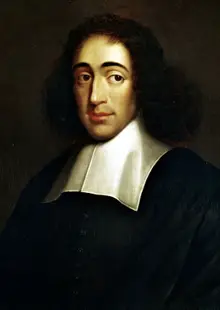
Benedictus de Spinoza
Baruch (de) Spinoza, also known under his Latinized pen name Benedictus de Spinoza, was a philosopher of Portuguese-Jewish origin. A forerunner of the Age of Enlightenment, Spinoza significantly influenced modern biblical criticism, 17th-century rationalism, and Dutch intellectual culture, establishing himself as one of the most important and radical philosophers of the early modern period. Influenced by Stoicism, Thomas Hobbes, René Descartes, Ibn Tufayl, and heterodox Christians, Spinoza was a leading philosopher of the Dutch Golden Age.

Theologico-Political Treatise — Part 2
Dare to question everything you thought you knew about religion as a philosopher challenges the very foundation of miracles and biblical authorship.
By Benedictus de Spinoza

The Philosophy of Spinoza
Embark on a journey to understand a philosopher's revolutionary perspectives on God, human nature, and the universe, made accessible for the modern reader.
By Benedictus de Spinoza
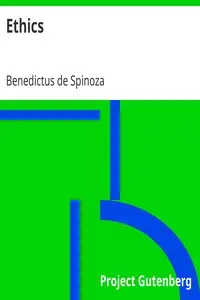
Ethics
Embark on a journey through existence itself as tightly woven logic unveils the secrets of God, humanity and nature, forever linking them in a philosophical dance.
By Benedictus de Spinoza

Theologico-Political Treatise — Part 1
In a time of unquestioned faith, a groundbreaking thinker dared to challenge how religion and politics intertwined, sparking a revolution of reason.
By Benedictus de Spinoza
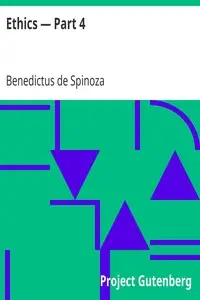
Ethics — Part 4
Discover how emotions can either enslave us or set us free as one man explores the complex relationship between feelings, reason, and morality.
By Benedictus de Spinoza
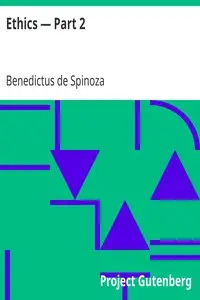
Ethics — Part 2
Uncover the secrets of the human mind and its link to the divine as one breaks reality down.
By Benedictus de Spinoza
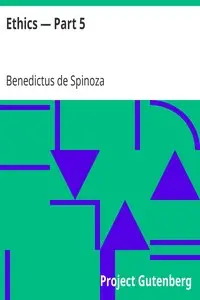
Ethics — Part 5
Discover how to achieve mental freedom and lasting happiness by mastering your emotions through the power of reason.
By Benedictus de Spinoza
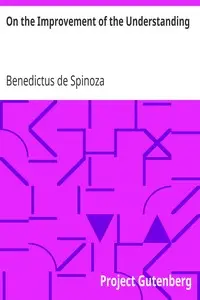
On the Improvement of the Understanding
A philosophical treatise explores the nature of truth and knowledge, emphasizing the importance of critical evaluation, systematic method, and reason in understanding reality.
By Benedictus de Spinoza
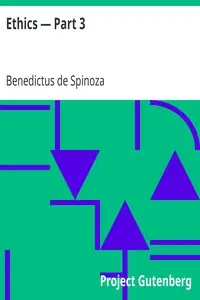
Ethics — Part 3
Uncover the surprising mathematical explanation of emotions like love and hate, and how understanding them can lead to true freedom.
By Benedictus de Spinoza
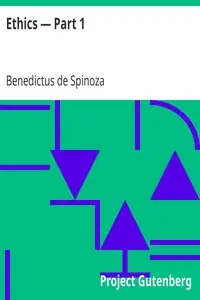
Ethics — Part 1
Uncover a revolutionary perspective on the divine and existence, where God's nature dictates the universe and challenges age-old beliefs about free will and destiny.
By Benedictus de Spinoza
![A Theological-Political Treatise [Part IV] by Benedictus de Spinoza](https://cdn.a2-host.cloud/oLEoT01nzb4qmdXej30arzSQ6UapDj-aNEzNc9Ju0qw/rs:fill:215:325:0/g:ce/aHR0cHM6Ly9zcC1hc3NldHMuczMudXMtd2VzdC0wMDQuYmFja2JsYXplYjIuY29tL2Jvb2svOTkyL0FfVGhlb2xvZ2ljYWxQb2xpdGljYWxfVHJlYXRpc2VfUGFydF9JVl9jb3Zlci5qcGc.webp)
A Theological-Political Treatise [Part IV]
Explore a world where personal rights remain intact even under the watchful eye of a governing power, as individuals navigate the complex relationship between self-preservation and communal agreement.
By Benedictus de Spinoza
![A Theological-Political Treatise [Part III] by Benedictus de Spinoza](https://cdn.a2-host.cloud/Z1swC-iyRPdO0w24Vbpj6PEYPdrMXm_reky7g0_GFnk/rs:fill:215:325:0/g:ce/aHR0cHM6Ly9zcC1hc3NldHMuczMudXMtd2VzdC0wMDQuYmFja2JsYXplYjIuY29tL2Jvb2svOTkxL0FfVGhlb2xvZ2ljYWxQb2xpdGljYWxfVHJlYXRpc2VfUGFydF9JSUlfY292ZXIuanBn.webp)
A Theological-Political Treatise [Part III]
In a time of great change, a philosopher challenged traditional religious and political thoughts, suggesting a revolutionary way to view faith and reason's relationship.
By Benedictus de Spinoza
